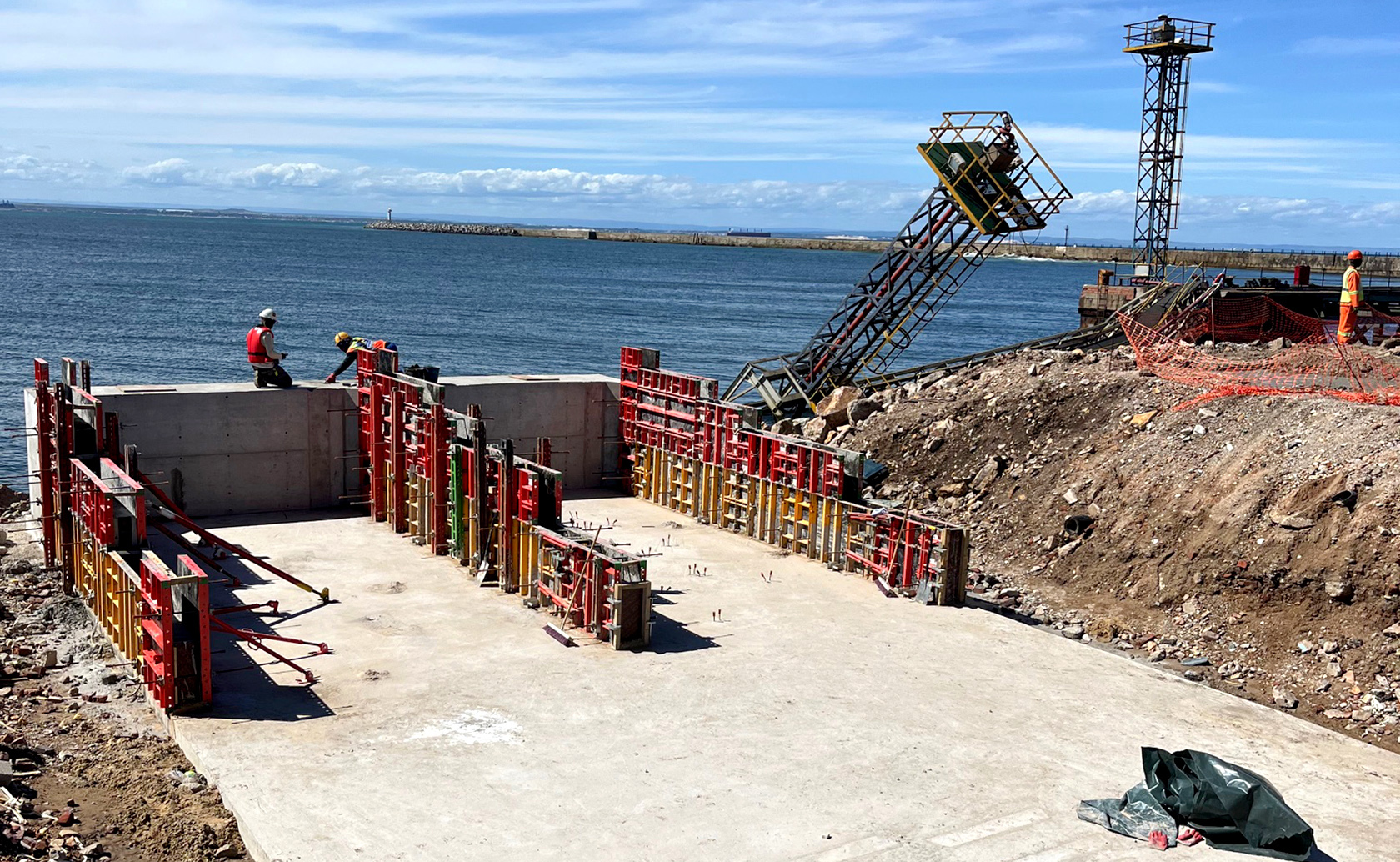The Nelson Mandela Bay Business Chamber obtained a court order on Wednesday by agreement with Minister of Minerals and Energy Gwede Mantashe that the metro and surrounding areas will be rezoned “coastal” as soon as the Port of Port Elizabeth fuel berth is fixed.
This means the transport cost component of the petrol price in the city will drop to its original levels. Transnet has not yet provided a firm date for recommissioning the fuel berth but initially indicated it would be around the beginning of December. Contractors are fixing the damage, and Daily Maverick is awaiting answers from Transnet on the project’s progress.
Chamber CEO Denise van Huyssteen said on Wednesday morning that Mantashe’s legal team was unwilling to commit to either December or January to effect changes to the petrol price zoning for the metro.
Read more: Gwede Mantashe considers application to exclude Nelson Mandela Bay from fuel price drop
Read more: Eastern Cape’s Kariega and Kirkwood bear brunt of petrol price adjustments due to Port Elizabeth Harbour woes
Businesses in the Nelson Mandela Bay metro are suffering economic losses of about R50-million a month as a result of Mantashe’s decision to implement revised transport tariffs as part of the region’s petrol price, Van Huyssteen said.
“We note that this pricing structure is supposed to be temporary in nature, and once the fuel berth is repaired the area will return to its former allotted zone. We, however, estimate that this decision is causing an irrecoverable direct loss to the local economy of approximately R50-million per month. By way of example, the October unleaded 95 petrol price decrease was supposed to have been 114 cents per litre, but due to the rezoning of Nelson Mandela Bay this price decrease was only 31c per litre, representing a loss of 83c per litre. In November the price of unleaded 95 petrol increased by 25c a litre but due to the inland zoning this was increased by 83c a litre for consumers in Nelson Mandela Bay,” she continued.
“Collectively this means that to date Nelson Mandela Bay consumers have paid R1.66 more per litre for 95 unleaded fuel versus what they would have paid if the area was still a coastal zone. In terms of diesel and paraffin the collective additional amount paid by consumers is also R1.66 more per litre.”
She said it was very concerning that no other options to mitigate the crisis had been considered by Mantashe.
“We are very unhappy with the lack of firm commitment and ongoing approach of punishing Nelson Mandela Bay consumers and businesses for an issue which is not of their making.”
The fuel berth at the Port Elizabeth Port was damaged in June 2024 and rendered unusable, resulting in industry hauliers having to transport fuel by road from East London to Nelson Mandela Bay.
Revised transport tariffs
Mantashe, in response to the additional costs associated with transporting fuel to the metro, then decided to implement revised transport tariffs in October and November 2024 for petrol, diesel and paraffin for Nelson Mandela Bay and surrounding areas. This resulted in interim zone changes in the affected areas, to allow hauliers to recover their fuel transport costs.
This means consumers and businesses paid increased petrol prices in both the metro and its surrounding towns.
Raphi Maake from the Department of Energy said at the time that the decision was taken to ensure fuel security in the metro.
Read more: ‘It was either that or no petrol’ – department explains Nelson Mandela Bay’s petrol price woes
“In the best interests of our members, consumers and communities, the chamber took action by filing an urgent review application in October, to gain access to the information which informed the minister’s decision, and have since received the record of decision from the Department,” Van Huyssteen said.
“From the records received it would appear that the minister did not consider any other options to mitigate the impact of the issue on consumers, but rather focused solutions on addressing the additional transport supply costs and the recovery thereof.”
Rezoning may not be in time for peak holiday season
Van Huyssteen said that while the chamber has put pressure on the minister and Transnet to accelerate the repair of the berth and return the metro to the coastal pricing zone, it remains “extremely disappointed that consumers and businesses continue to carry additional costs through the fuel price adjustments to fund this. It casts doubt that the berth, which is earmarked to be repaired by Friday, 6 December, is on track and potentially may not achieve this deadline.”
The chamber has warned that this means the metro might not revert to its coastal zone pricing status before the holiday season.
“As we are a nonprofit organisation and do not have the financial resources of the state, the chamber decided to reach a settlement with the minister, whereby, through a court order, it has been agreed that Nelson Mandela Bay will revert to being part of the coastal zone once the berth is operational again. The minister was not willing to make this change from early December or January when the fuel price adjustments will take place, indicating the low confidence levels in the berth becoming operational timeously,” Van Huyssteen added.
Maake confirmed on Tuesday that the minister will return the region to the coastal zone transport tariffs as soon as the berth is recommissioned. He stressed that the transport tariffs were calculated on a recovery basis and did not allow for profiteering. DM





